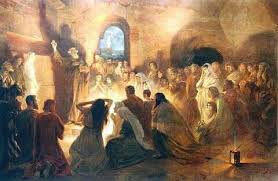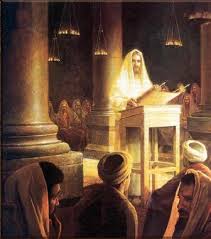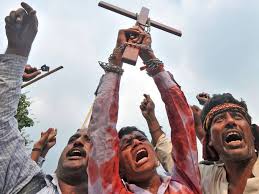 Why Should/Shouldn’t My Church Embrace Change? Part XXXXII
Why Should/Shouldn’t My Church Embrace Change? Part XXXXII
The apostolic point of view sees the Church as a whole in God’s divine plan. The Old Testament usually outlines the foundation for godly principles, and the New Testament usually fulfills them through Jesus. An Old Testament scripture that sets the stage to reveal God’s divine plan for Israel, the kingdom of God, and the Priesthood of believers is Deuteronomy 16:16: “Three times in a year all your males shall appear before the Lord your God in the place which He chooses, at the Feast of Unleavened Bread and at the Feast of Weeks and at the Feast of Booths, and they shall not appear before the Lord empty-handed.”
One can understand his passage and its meaning through the different feasts which reveal truths pertaining to the history of Israel, the birth of the New Testament Church, through the life of Jesus, and through the establishment of the kingdom of God.
 Old Testament History of Israel:
Old Testament History of Israel:
All are called to “appear before the Lord your God in the place which He chooses” for “the Feast of Unleavened Bread (Passover/Pesach) and at the Feast of Weeks (Pentecost/Shavuot) and at the Feast of Booths (Sukkot).” During Passover/Pesach the angel of death “passed over” all the doorpost where lamb’s blood was smeared, saving the firstborn inside from death. This event allowed Israel to leave 500 years of slavery to “pass through” the Red Seas and the Wilderness of Sin to the Promise Land. Pentecost/Shavuot celebrates Moses receiving the written Word on Mount Sinai. The Feast of Booths/Sukkot commemorates 40 years of wandering through the dessert while living in temporary shelters in preparation for entering into the Promise Land. It also celebrates the ingathering of the harvest.
 New Testament Church:
New Testament Church:
To the Church, Passover is when Jesus became the sacrificial lamb whose blood was shed to cover the sins of the world. He would be God’s living Word given to the Church, so when he ascended back to the Father, He would send the Holy Spirit on Pentecost, birthing and baptizing his church with power as the Rhema Word, the living Word, to prepare it for the Feast of Booths when the Groom, Jesus, would return for His Bride, the Church, for an ingathering of saints.
 The Life Of Jesus:
The Life Of Jesus:
Jesus is the fulfillment of all three of these festivals: “the Feast of Unleavened Bread (Passover) and at the Feast of Weeks (Pentecost) and at the Feast of Booths. Jesus fulfilled Passover as the Sacrificial Lamb, dying for the sins of the world. He would fulfill Pentecost by becoming the Living Word that dwelt among man and send the Holy Spirit to empower his believers. Finally, through the Feast of Booths, Jesus will return for a glorified Church, harvesting, ingathering his saints, the Church.
 Christian Believers:
Christian Believers:
All who are Christians are called to “appear before the Lord your God in the place which He chooses” for “the Feast of Unleavened Bread (Passover) and at the Feast of Weeks (Pentecost) and at the Feast of Booths.” These feasts are decisive experiences with Jesus during the lifetime of a believer. He must face Jesus as his Savior, Passover, accept Him as his Lord, Pentecost, be willing to give all up, even his physical body, to be with Him in heaven throughout eternity.
 The Kingdom of God:
The Kingdom of God:
The Kingdom of God is about spiritual growth of a believer. Martin Luther defined Passover as “justification by faith.” Because of what Jesus did on the Cross, God views us ‘just as if we never sinned.” Pentecost is the spiritual growth called “sanctification” - “until we all attain to the unity of the faith, and of the knowledge of the Son of God, to a mature man, to the measure of the stature which belongs to the fullness of Christ….. we are to grow up in all aspects into Him who is the head, even Christ.” (Ephesians 4:13,15) Jesus appeared with a glorified body to the twelve after his resurrection. We, too, will celebrate the Feast of Booths by having glorified bodies when we physically die and go to be with Jesus throughout eternity, a process called glorification.